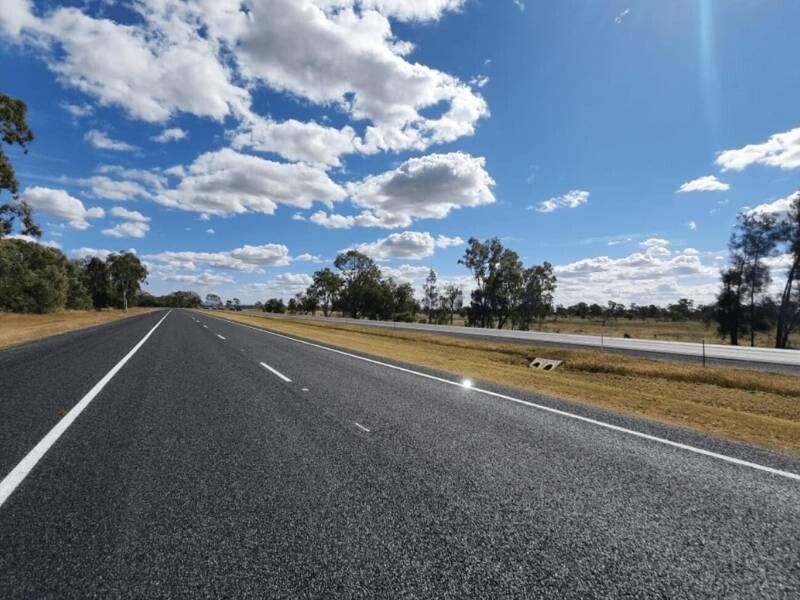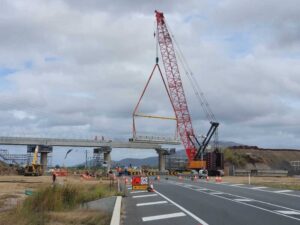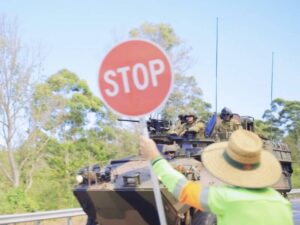When people think of traffic control, they usually picture major highway upgrades, multi-lane closures or big-budget civil projects. But the reality is, most roadwork doesn’t happen on the M1.
It happens in backstreets, neighbourhoods, cul-de-sacs and local shopping strips. And those smaller-scale jobs — the ones that last a few hours, or take up half a lane — are still exposed to the same risks.
At East Coast Traffic Control, we believe every job deserves professional safety, no matter the size. From minor maintenance works to local community upgrades, here’s why we treat small jobs with big care.
A narrow street doesn’t mean narrow margins of safety
Local roads often come with unique challenges:
- Limited space for vehicles and plant
- Reduced line of sight due to parked cars or trees
- Close proximity to footpaths, driveways and front fences
- Curious neighbours and foot traffic, especially kids and pets
Just because the job is short-term or low-impact doesn’t mean it’s low-risk. That’s why our setups on residential or low-speed roads still follow full safety protocols — compliant signage, clear pedestrian detours, visual barriers and appropriate tapers.
The public is even closer on local roads
In a residential street or local precinct, your worksite might be just metres from someone’s front door, driveway or daily walking route.
We plan setups to:
- Maintain safe pedestrian access
- Communicate clearly with residents or nearby businesses
- Use polite, helpful signage and barrier placement
- Keep the noise and disruption to a minimum
- Adjust quickly if access needs change on the day
Good traffic control isn’t just about managing cars. It’s about respecting the people who live and work around the site.
We support the “small but vital” jobs
Some of the most important projects councils and civil contractors deliver are short, simple, but critical:
- Pothole repairs
- Footpath upgrades
- Drainage maintenance
- School zone works
- Local event traffic planning
- Tree trimming or service access
These jobs might be small, but they still need to be safe. Our crews regularly support projects like these with full attention and care — not a stripped-back or half-hearted setup.
We don’t cut corners on small sites
We’re often called in because another provider didn’t take a small job seriously enough. Whether it was unclear signage, no proper pedestrian detour, or a missed permit requirement, the result is the same — frustrated residents, safety complaints, and in some cases, shut-downs.
Our approach is simple: if it’s on the road, it’s worth doing properly.
We bring the same professionalism, PPE, TMP compliance and readiness to a half-day lane closure as we do to a five-week road reconstruction.
Local councils trust us for a reason
We’re proud to support local governments across QLD and NSW who value consistency. They know we treat their short-term or small-scale jobs with the same diligence as major projects.
Whether it’s a minor reseal in Gympie, a sewer access point in Lismore, or a storm drain clean in Rockhampton, we get the job done right — without disrupting the community, the contractors, or the timeline.
Every job is someone’s workplace
That pothole repair might take three hours, but it’s still a live job site with plant, vehicles and people at risk. And it’s still a shared space with the public.
We don’t decide whether a job “deserves” traffic control — we assess the risk, plan for safety, and deliver what’s required to protect everyone involved.
FAQs
Do you provide traffic control for short-term or half-day jobs?
Yes. We regularly support short-duration jobs including maintenance, inspections, tree works, and council projects that last just a few hours.
What about narrow or quiet streets?
We treat every location with care. Narrow residential streets are assessed for visibility, safe signage placement and pedestrian management.
Is a full TMP still needed for small jobs?
In most cases, yes. We follow all local and state compliance rules — even on small setups — and ensure that documentation matches site conditions.
Do your crews speak to nearby residents or shop owners?
Yes. Wherever possible, we communicate with people directly affected by the job to explain what’s happening and how long it will take.
Will you still use VMS boards or arrow boards for local jobs?
Where appropriate, yes. Our gear is scaled to suit the job, but we don’t under-resource sites that still carry safety or compliance risks.





